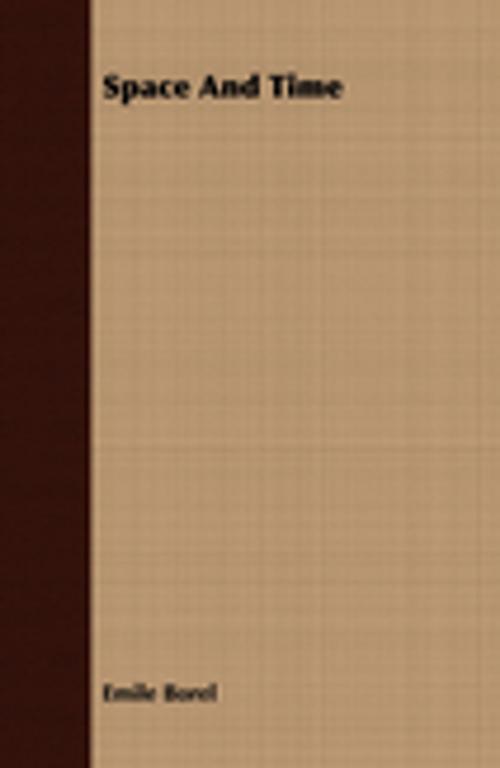| Author: | Emile Borel | ISBN: | 9781447494454 |
| Publisher: | Read Books Ltd. | Publication: | April 16, 2013 |
| Imprint: | Case Press | Language: | English |
| Author: | Emile Borel |
| ISBN: | 9781447494454 |
| Publisher: | Read Books Ltd. |
| Publication: | April 16, 2013 |
| Imprint: | Case Press |
| Language: | English |
Borel was born the son of Honoré, a pastor, and Emilie Teissié-Solier Borel, in the French town of Saint-Affrique on January 7, 1871. His was a world heavily influenced by the recent humiliation of the Franco-Prussian War, and on a personal level, Borel, as the younger brother of two sisters, had to fight to distinguish himself. Distinction came early, however, with an invitation to study at several prestigious preparatory schools in Paris. Borel went on to the Ecole Normale Supériere, a preeminent school in science and mathematics with which he would remain connected for most of his life. After earning his doctorate in 1894, he returned to the Ecole Normale to teach. His work Space and Time helped make Albert Einstein's theory of relativity comprehensible to non-technically educated readers, and his work extended far beyond the world of mathematics. As an influential figure in French politics, he helped direct that country's policy toward scientific and mathematical research and education.
Borel was born the son of Honoré, a pastor, and Emilie Teissié-Solier Borel, in the French town of Saint-Affrique on January 7, 1871. His was a world heavily influenced by the recent humiliation of the Franco-Prussian War, and on a personal level, Borel, as the younger brother of two sisters, had to fight to distinguish himself. Distinction came early, however, with an invitation to study at several prestigious preparatory schools in Paris. Borel went on to the Ecole Normale Supériere, a preeminent school in science and mathematics with which he would remain connected for most of his life. After earning his doctorate in 1894, he returned to the Ecole Normale to teach. His work Space and Time helped make Albert Einstein's theory of relativity comprehensible to non-technically educated readers, and his work extended far beyond the world of mathematics. As an influential figure in French politics, he helped direct that country's policy toward scientific and mathematical research and education.















